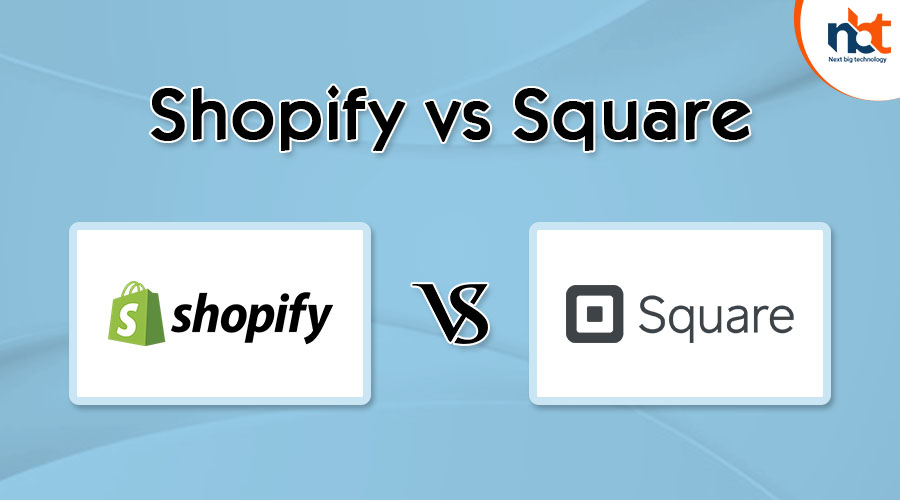Shopify and Square are both user-friendly platforms with a wide range of e-commerce features, as well as built-in payment processing and payment tools.
If you want to focus on e-commerce or online sales, Shopify is a terrific option. If your primary sales channel is brick-and-mortar and you need good online shop functionality, Shopify is the ideal choice.
This article compares Shopify vs Square based on their features so you can make the best decision.
Table of Contents
Shopify
Lake and Lutke established Shopify to make e-commerce easier. This cloud-based software provides an all-in-one solution for online sellers to start, operate, and expand their enterprises across digital and physical channels.
Also Read: Why Should You Choose Magento Vs Shopify for Your Business?
Shopify makes online buying more accessible for customers by providing merchant services such as cheap shipping, financing, and payment processing. Shopify is now one of the most popular retail operating systems in the world, with 1.7 million merchants using it.
The market opportunity for Shopify is estimated to be $150 billion, although this number excludes large businesses with more than 400 workers. Shopify Plus, a configurable eCommerce platform for businesses, is meant to expand the company’s genuine market potential.
Shopify appears to be gaining traction, as it now serves over 10,000 online firms, including PepsiCo, Nestle, General Electric, and Fortune 500 companies. If Shopify continues to grow in popularity, it has the potential to become a trillion-dollar company by 2030.
Square
Square was created as a result of a problem. Jim McKelvey and Jack Dorsey co-founded mobile card reader in 2009, a small gadget that allows retailers to utilize cellphones as point-of-sale systems and payment processors.
Square’s business has expanded into two primary components since its inception: the Cash App ecosystem and the seller system. Both technologies have grown into digital payment systems, boosting e-appeal. commerce’s
The Square seller ecosystem consists of a collection of software, hardware, and services that assist merchants with anything from marketing to payroll to inventory and payment processing. Square Online, which allows businesses to create online storefronts that instantly connect with actual retail locations, was just launched.
Also Read: Why Should You Build Your E-Commerce Website Using Shopify? Read Here!
Users may transfer and spend money through the Cash App ecosystem, which is aimed towards consumers. In 2018, Square included bitcoin into the Cash App, which increased client engagement. Credit Karma Tax, a mobile-first tax-filing service, was just included in the Cash App by the firm.
Square just had excellent financial achievements. Investors should keep in mind that low-margin bitcoin sales have an impact on revenue figures. As a result, you should put a premium on gross profit.
The $160 billion market opportunity for Square allows space for future online company expansion. Square just launched its seller platform in Ireland, making its services available in six countries: the United States, the United Kingdom, Canada, Japan, Australia, and Ireland. The two Square ecosystems must develop quickly in order to keep up with the expansion of e-commerce.
Which is Better for Your Online Store: Shopify or Square?
For many multichannel shops, Shopify is the ideal answer. Square is a good option for startups and small businesses with a limited budget for online sales.
Square specializes in industry-specific items, whereas Shopify caters exclusively to merchants. Food/beverage enterprises, appointment-centric businesses, retail solutions, and all-inclusive POS are all covered under the former.
Food and beverage companies such as restaurants, cafés, and trucks, as well as appointment businesses such as salons, spas, and beauty/health treatment providers, may find Square to be a superior multi-channel solution.
As a result, select the platform that is most suited to your online company’s needs and sector.










